All Stories
-
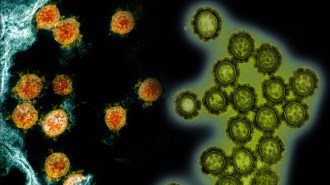 Health & Medicine
Health & MedicineWhat will happen when COVID-19 and the flu collide this fall?
As the Northern Hemisphere braces for a coronavirus-flu double hit, it’s unclear if it’ll be a deadly combo or one virus will squeeze out the other.
-
 Environment
EnvironmentWhat we know and don’t know about wildfire smoke’s health risks
As wildfires become more frequent and severe in California, Oregon and throughout the West Coast, concerns rise about harmful air pollution.
By Aimee Cunningham and Maria Temming -
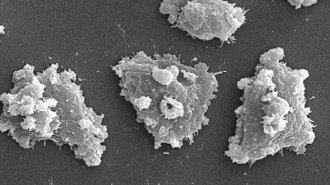 Microbes
Microbes50 years ago, scientists were on the trail of a brain-eating amoeba
In 1970, scientists were studying a brain-eating amoeba that had been implicated in a newfound disease. Today, infections by the parasite are still poorly understood.
-
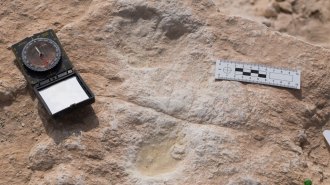 Anthropology
AnthropologySeven footprints may be the oldest evidence of humans on the Arabian Peninsula
In what’s now desert, people and other animals stopped to drink at a lake more than 100,000 years ago, a new study suggests.
By Bruce Bower -
 Oceans
OceansUnderwater earthquakes’ sound waves reveal changes in ocean warming
A new technique uses the echoes of earthquakes in seawater to track the impact of climate change on the oceans.
-
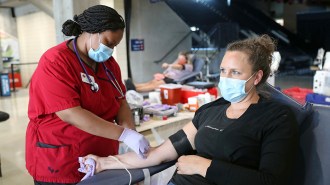 Health & Medicine
Health & MedicineBlood donations show that the United States is still nowhere near herd immunity
Testing donated blood for antibodies to the coronavirus highlights that the vast majority of the United States remains susceptible to infection.
-
 Science & Society
Science & Society‘The Origins of You’ explores how kids develop into their adult selves
A new book describes the interplay of nature and nurture as children, at least in Western societies, grow up.
By Bruce Bower -
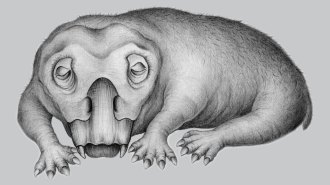 Paleontology
PaleontologyAncient Lystrosaurus tusks may show the oldest signs of a hibernation-like state
Oddball ancestors of mammals called Lystrosaurus might have slowed way down during polar winters.
By Susan Milius -
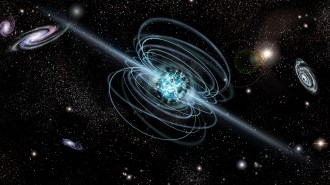 Space
SpaceNeutrinos could reveal how fast radio bursts are launched
Highly magnetized stellar corpses called magnetars may be the source of two different cosmic enigmas: fast radio bursts and high-energy neutrinos.
-
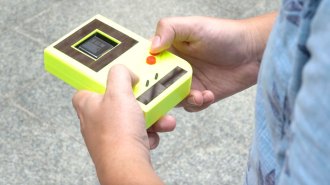 Tech
TechA Game Boy look-alike runs on solar panels and button smashes
A new prototype console that looks and feels like the original Game Boy harnesses user-generated energy to run without batteries.
-
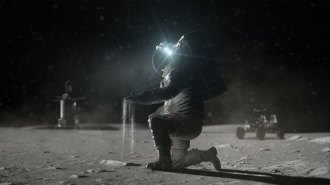 Space
SpaceHow do you clean up clingy space dust? Zap it with an electron beam
An electron beam is the newest addition to a suite of technologies for cleaning sticky and damaging lunar dust off surfaces.
By Jack J. Lee -
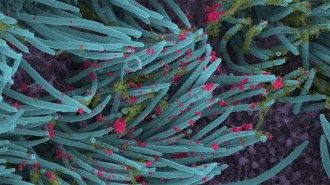 Health & Medicine
Health & MedicineLung cell images show how intense a coronavirus infection can be
Microscopic views reveal virus particles coating the hairlike cilia of an airway cell from the lungs.